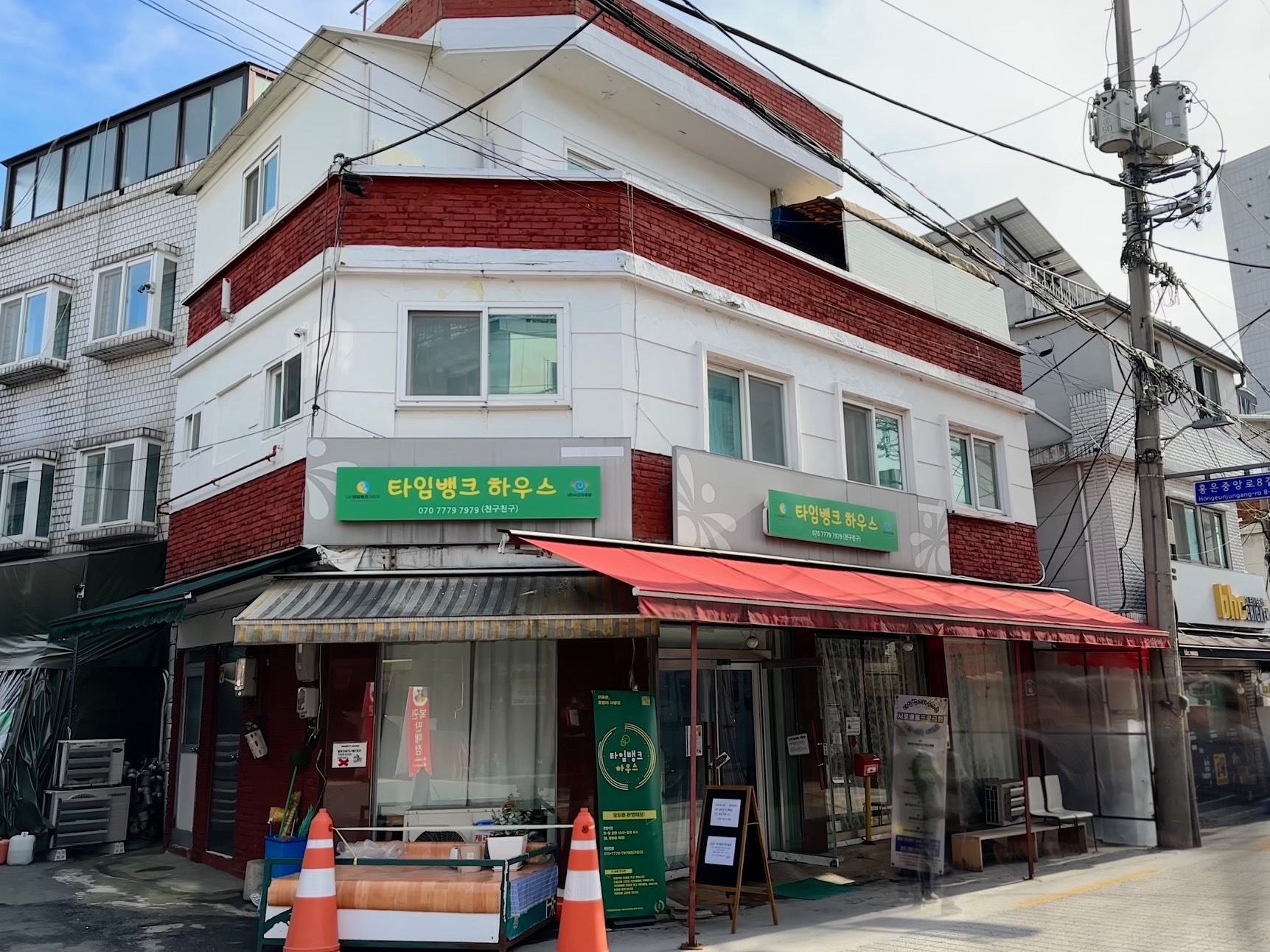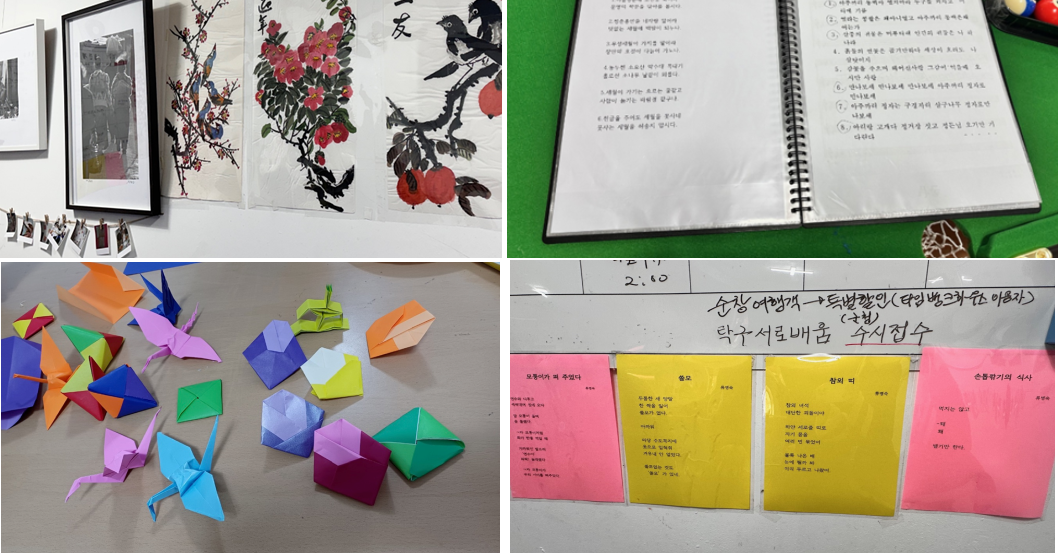Everyone's Time Holds Equal Value: Timebank Korea
Timebank is a system that originated in the United States during the 1980s, based on the fundamental principle that "everyone's time has the same value." This innovative approach acknowledges the equal value of everyone's labor, fostering a sense of interdependence within the communities and bolstering social cohesion by facilitating the sharing of needs and capabilities. Timebank operates as a modern form of barter, where time is the currency used to help neighbors in need, accumulating currency for future use when assistance is required. Through participation, individuals provide help to their neighbors and receive time currency equivalent to the hours spent. In this context, this report delves into "Timebank Korea," spotlighting its mission to not only facilitate service exchanges but also to fortify societal bonds and champion the creation of equitable communities. By exploring the values and distinct features of Timebank Korea and comparing it with timebanking systems in other countries, we seek to illuminate the wider implications for the global community.
The primary goal of Timebank is to share individual talents within the community and foster a culture of mutual support. For instance, one person might share their knowledge by teaching English, and in return, receive cooking lessons. This system proves particularly beneficial for those with vulnerable social networks, such as the older individuals, people with disabilities, and those living alone. Timebank transcends mere time exchange; it facilitates mutual assistance within the community, connecting needs with skills and strengthening the sense of community. Participants gain pride from contributing their skills to society and feel a sense of belonging as part of the community through receiving help from others.

Timebank Korea
Located in Hongeun-dong, Seodaemun District, Seoul, "Timebank Korea" is an actively operated timebank center within the country. Timebank Korea serves as a generational integration space where diverse age groups, regardless of gender or disability, come together to participate. Breaking away from the traditional concept of volunteers and beneficiaries, it is grounded in "co-production," a model of mutual aid. Co-production is based on five core values: assets, new meanings of labor, reciprocity, social capital, and respect. Rather than focusing on what people lack, this approach considers what individuals can do in their current state. It encourages participants to use their energy and skills to contribute to solving others' problems, thereby experiencing and facilitating the exchange of help as the community evolves. Mr. Son Seorak, the representative of Timebank Korea, emphasizes, "Timebanking is not just about exchanging services; it's about creating a culture where people understand and respect each other. Through this, we aim to foster closer relationships within the community and create an environment where we can grow together."
Timebank Korea is pioneering a new compensation system for labor that is not financially rewarded, thereby playing a crucial role in building social networks for marginalized communities. Given the high older population in Hongeun-dong, this initiative seeks to reevaluate the labor value of the older persons, supporting them to become and remain active, vital members of society through various compensation systems. One notable instance involves Mr. Yu, who visited Timebank Korea to use the Wi-Fi. Having lived in Hongeun-dong for over 60 years, he led a solitary life without much interaction with neighbors and felt he had no particular skills or talents to contribute. However, Mr. Son Seorak, the representative, explored new possibilities with Mr. Yu, suggesting he try playing Omok (a traditional Korean board game). This led Mr. Yu to interact with a young person with developmental disabilities who enjoyed playing Omok on his smartphone. It was the first time this young man played Omok against a human opponent, thanks to Mr. Yu's involvement. And later, when Mr. Yu needed to undergo an endoscopic examination, the young person became his companion to the hospital, acting as Mr. Yu's guardian. This story illustrates how Timebank Korea transcends mere service provision to create a community where people naturally exchange the help they need. Here, participants are not passive beneficiaries but equal members of the community, engaging in a culture of mutual assistance.
Moreover, Timebank Korea is pioneering new opportunities for engagement among the older persons in the community, particularly those grappling with feelings of social isolation, thereby ushering in a wave of positive transformations in their lives. The act of sharing their rich tapestry of experiences and wisdom allows these seniors to reassert their societal worth and bolster their self-esteem. Timebank Korea extends to all its participants, including the elderly, the chance to delve into new realms of learning, thereby revitalizing their everyday existence. It notably facilitates avenues for older individuals living alone to engage actively in initiatives like communal dining and side dish sharing. These activities are instrumental in nurturing a robust community spirit, reinforcing the fabric of social connectivity.
Timebanking is gaining momentum worldwide, with adaptations that reflect the distinct features of each country. There's a noted correlation between the swift adoption of Timebank and the challenges posed by rapidly ageing populations. Against this backdrop, Timebank Korea plans to continue expanding the value and influence of Timebank through international exchanges and cooperation. The efforts of Timebank Korea showcase the new possibilities where individual time and skills can be transformed into social value. Cultivating a culture of mutual support and collective growth within communities not only enhances the quality of life for individuals but also plays a significant role in addressing social issues. Moreover, Timebank Korea is actively pursuing social innovation through a variety of activities including coordinator training and development, research and advocacy, policy proposals, supporting organizations starting their own Timebanks, and networking with international institutions. In 2020, it achieved significant progress by operating a Timebank for single-person households in Seoul and developing performance indicators for Timebank.
The initiatives of Timebank Korea can be lauded as exemplary in addressing the issue of social isolation among the older population. Through the process of sharing their knowledge and experiences, and extending a helping hand to one another, the older individuals demonstrate that they are not marginalized entities but valuable members of society. The activities of Timebank Korea offer a vital opportunity for all generations to recognize the importance of social solidarity and community spirit. They prove that individuals can transform their time and talents into social capital, laying the foundation for societal innovation. This not only contributes to personal self-fulfillment but also enhances the welfare of the community at large. Therefore, the work of Timebank Korea is anticipated to continue being a significant force for ongoing social change and development.

Clay, Origami, Drawing, Rhymes Photography: At Timebank Korea, various mutual learning classes are conducted, including origami, clay art creation, learning rhymes, singing Gyeonggi folk songs, multiplication tables, and harmonica lessons.
Redefining the value of labor, the Timebank movement, centered on relationships and sharing, is spreading worldwide in various forms. Among these, Japan's "Peanuts Club" stands out as a prime example, utilizing "Peanuts" – a time-based currency – to invigorate the local economy and bolster community spirit. Introduced in 1995 in Chiba City, Japan, Peanuts serves as a local currency that enables residents to trade services and goods without cash. Focusing not just on economic value, Peanuts emphasizes building trust and a sense of connection among people. Members of the Peanuts Club receive goods or services at a 5-10% discount from Peanuts Club-affiliated stores, in exchange for assisting with chores at the store. This interaction fosters a sense of belonging that positively impacts the community and strengthens communal ties. In Japan, besides Peanuts, other time currencies like "Komo" and "Zura" are in operation, contributing to the development and revival of their respective communities.
China is addressing the challenges of ageing with an innovative approach by incorporating the Timebank movement into its 2018 ageing population response plan. This plan aims to expand the roles of the older persons through volunteer activities, sharing their achievements to foster communal prosperity, with rapid expansion supported by the government. The Timebank movement in China is adapted to reflect the diversity of local communities, tailoring to regional needs and cultural contexts. These community-led initiatives, supported by governmental backing, are based on mutual aid, alleviating the hardships of the older individuals, and upholding traditional values like filial piety. By offering citizens, including the older persons, opportunities to participate in volunteer activities, China's Timebanks are building social capital. This innovative model combines traditional values with modern societal needs to address the challenges of aging, emphasizing that the elderly are not merely subjects of care but can play an active role within the community. Additionally, Timebanks contribute to enhancing interdependence and solidarity across generations within communities.
As the Timebank movement spreads globally, it evolves in alignment with the cultural and social needs of different countries. Notably, initiatives like Timebank Korea and others worldwide aim to enhance community spirit by connecting individuals' needs and abilities within their communities. This goes beyond mere exchange of time, fostering close bonds among people and building communities where everyone can contribute equally. The "Peanuts Club" in Japan and the Timebank movement in China exemplify how Timebank can innovatively develop to match the unique characteristics of local communities. The efforts of Timebank Korea and similar movements across the globe are expected to continue spreading their positive impact, further enriching the fabric of societies everywhere.